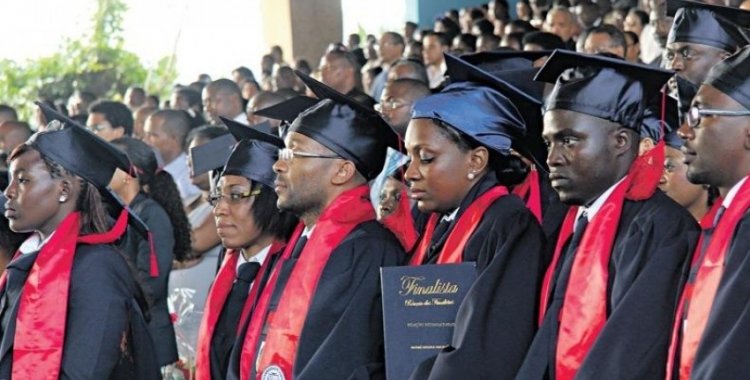The Secretary of State for Higher Education, Eugénio Alves da Silva, explained that the authorization of the number of places "obeys the principle of safeguarding the quality of training".
The official noted that the number of places requested by Angolan higher education institutions, for the academic year 2021/2022, increased from 164,842 to 186,670, representing an increase of 11.6 percent compared to the previous year.
Regarding the authorized places, he said, "they went from 133,672 to 144,301, that is, 7.3 percent more" compared to the academic year 2020/2021".
The national higher education network in Angola is made up of 93 legally recognized institutions, 29 of which are public and 64 private, and three new public universities, "resulting from the reorganization of the network", will be part of this teaching subsystem from this academic year onwards.
A new university and three new private higher institutes will come into operation in this new academic year in Angola, comprising a universe of 100 institutions.
According to Eugénio Alves da Silva, in order to allocate the number of places to institutions, the Ministry of Higher Education, Science, Technology and Innovation (MESCTI) evaluates several items ranging from the teaching staff "in quantity and quality" to the percentage of teachers in effectiveness regime.
The number of rooms and specific laboratories for each course, the failure rate per course in the last three years, the ability to guide laboratory practices and curricular internships are also among the requirements for allocating the number of places to institutions.
In the areas of social sciences, commerce and law, 73,327 places were requested, but the MESCTI authorized only 61,737, for agriculture, forests and fisheries, 1738 were requested, but 1583 were authorized, and for engineering, manufacturing and production, 30,487 places were requested and authorized 26,749 vacancies, among other areas.
Higher education institutions in Angola provide a total of 1,905 courses in psychology (74), law (59), nursing (47), accounting, finance and auditing (40), management (40), computer engineering (39) to lead the courses given.
Eugénio Alves da Silva also lamented that in Angola, "a country that wants to make agriculture the fundamental basis for development", there are only four courses in agronomy, two in aquaculture and two in zootechnical engineering.
"And in the areas of science, such as mathematics, chemistry, physics and biology, there is only one course and the country's development cannot be done without these specialists, and that is why our bet is to change the current composition of courses", he pointed out.
Enrollment for entrance exams in public higher education institutions began on Monday and run until August 13, with exams scheduled between the 23rd and 27th of this month.
For private institutions, applications are due between August 30th and September 10th and exams between September 13th and 17th.







